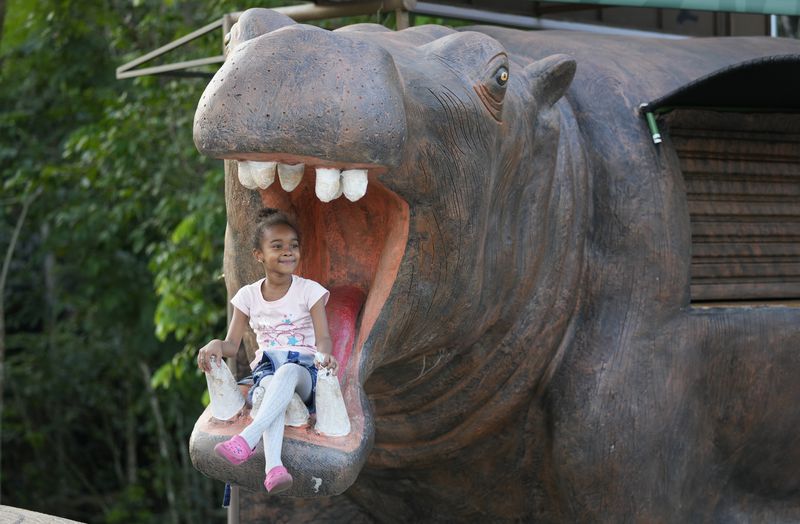Considered among the most dangerous animals in the world, wild hippos have already exceeded a hundred and have caused problems in the ecosystem of the Magdalena River, Colombia.
Euthanasia, sterilization or banishment: Colombian authorities explained this week what the possible destinations would be for the 166 hippos from the four specimens that drug trafficker Pablo Escobar initially took to his Hacienda Nápoles more than 30 years ago.
Colombia’s Minister of Environment and Sustainable Development, Susana Muhamad, announced at a press conference on Thursday details aimed at stopping the expansion of the herd, which has been breeding unchecked since the time of Escobar. The mammals, which grow in the Magdalena River, could be transferred to other countries, such as Mexico or India.

“The first stage of this management plan begins, which will show next week the phase of sterilization of hippos in Colombia,” said the minister, hoping that at least 20 of these animals will be sterilized this year. “A part of the population” will be subjected to “ethical euthanasia”, although Muhamad did not specify when this process would begin.
To date, 24 hippos have already been surgically sterilized, but the Colombian minister acknowledged that this measure is not enough to keep the animals safely in captivity.
Regarding the “translocation” of the specimens, Bogotá is in discussions with the governments of Mexico, India and the Philippines, for a possible transfer of these animals.
According to the minister, we are in “a race against time”, since the hippos continue to reproduce. “We will have to have ethical euthanasia for part of the population,” he indicated during the conference, adding that public consultations are already underway to define the evolution of the process.

The 166 hippos that exist today are the children of the four specimens that Pablo Escobar, in the 1980s, transferred to Colombia for his private zoo at Hacienda Nápoles. After the drug trafficker died in the middle of a police operation in 1993, the pachyderms were released.
The drug trafficker introduced the species to Colombia specifically in 1981, when he purchased four hippos from a zoo in the United States. There were three females and one male, intended for collecting exotic animals at Hacienda Nápoles, which had 3,000 hectares of land and is today maintained for tourism.
Most of the animals Escobar had on his farm were found in other Colombian zoos, but the case of the hippos was too complicated: difficult to move and maintain, they were left where they were. Due to the lack of predators and the fertile, swampy region of Antioquia, they were a perfect mix for the animal’s reproduction.
Given how quickly they reproduce, experts estimate their numbers could reach more than 1,000 by 2035, if nothing is done about it. Besides their numbers, wild hippos are considered one of the most dangerous species in the world.
“They are very territorial” and “very aggressive” animals which “because of their diet, they affect the entire ecosystem,” Minister Muhamad said during her press conference. The government of Gustavo Petro has repeatedly emphasized that these hippos cause serious damage to the environment and that almost $10,000 will be spent for each sterilization carried out.
Source: Latercera
I’m Scott Moore, a professional writer and journalist based in the US. I’ve been writing for various publications for over 8 years now, and have been working as an author at athletistic for the past five years. My work has been featured by some of the leading sports websites and magazines across Europe.


